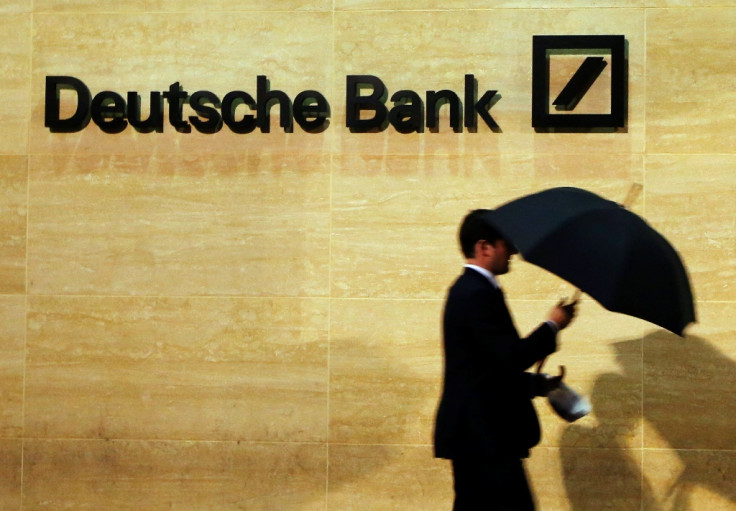What will new Deutsche Bank chief John Cryan's next move be?

Following the departure of Deutsche Bank's governing partnership of Anshu Jain and Juergen Fitschen, market watchers are trying to second guess to what extent new chief executive John Cryan will execute change.
Fitschen and Jain stepped down in the middle of a €3.5bn (£2.56bn, $3.9bn) shake-up at the bank, which they themselves proposed. This involved selling off some of retail unit Postbank, leading to branch closures, job losses, and the streamlining of its investment banking operations around the globe.
New boss Cryan impressed market watchers with the way he, as chief financial officer, handled trouble at UBS back in 2008, when the bank was struggling to balance its books. As one analyst commented: "Cryan had a good track record on addressing non-core [business] head-on at UBS".
However, UBS is not a blueprint for the situation happening at Deutsche. And while Cryan may have backed Jain and Fitschen's plans while he was on the bank's supervisory board, he may now decide to take a fresh approach.
Michael Huenseler, who helps manage about €14bn at Assenagon Asset Management in Munich and is one of the lender's top 20 investors, told IBTimes UK: "It has never been obvious that they couldn't combine retail units of Postbank and Deutsche Bank and save costs with their distribution channels.
"The problem is that retail banking in Germany is barely profitable at all. People don't tend to default and Germany is heavily over-banked," he said.
Postbank options
Postbank was purchased in 2010 to attempt to shift Deutsche's reliance away from trading and investment banking. It had the lowest return on equity and the highest costs as a share of revenue of any of the company's four units last year, according to its company filings. The division accounts for almost half of Deutsche's 98,138 staff and some 20% of the bank's risk-weighted assets.
Sources at the bank told newspapers last month that a possible option was bundling the Postbank unit together with some other consumer operations, to be sold to the public in 2017.
There is also the option of merging Postbank into other consumer units at the bank and then cutting costs across the merged entity. A third would be to sell Postbank and free up capital, allowing the bank to shrink its risk-weighted assets.
Investment banking focus
Despite the regulatory onslaught Deutsche has been fending off, the potential case for splitting the investment and retail banking operations is different from that at its UK counterparts. The idea of a "good bank" and a ring-fenced "bad bank" in the UK means a refocus on retail and the bank's customers – something cynics might even describe as a PR exercise.
In the last quarter, revenues from Deutsche's investment banking operations were solid, with equities and investment banking fees looking particularly strong. It is the retail operations where return on equity is weakest.
Indeed, Deutsche's fate could be to become a more dominant global investment bank, powered as it is by Germany's Mittelstand industry, where there is still a need for M&A advisory services and investment advice from around the world.
Deutsche could stand to benefit from the UK's antipathy towards investment banking (which actually pays for the "free" banking services we have come to expect from the good guys running the retail operations).
Banks like RBS served a lot of clients, employed many skilled bankers and held hundreds of billions in corporate assets around the globe – much of it being studiously wound down and sold off.
Whatever route is taken with Deutsche's retail restructuring, a narrowing in focus of the investment bank will complement it. This would be concentrated on businesses with hedge funds and also parts of its derivatives and interest-rate trading desks that do not serve corporate customers, the media reported.
"The perception is that Deutsche has been ignoring some problems at the investment bank. An unwillingness to co-operate however is totally unacceptable. This has come to an end and we will see radical change," added Huenseler.
© Copyright IBTimes 2025. All rights reserved.






















